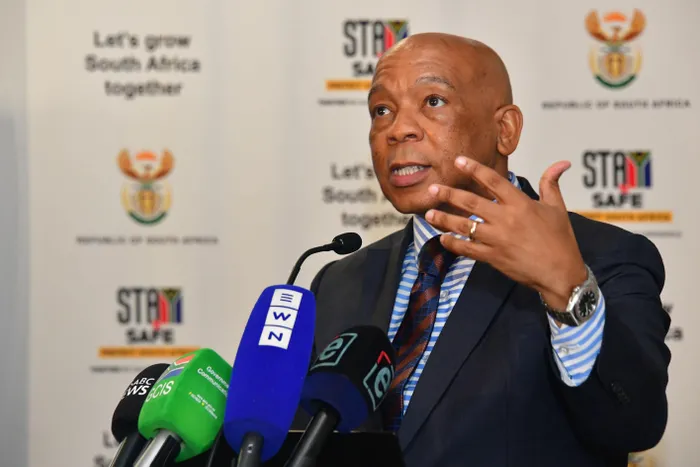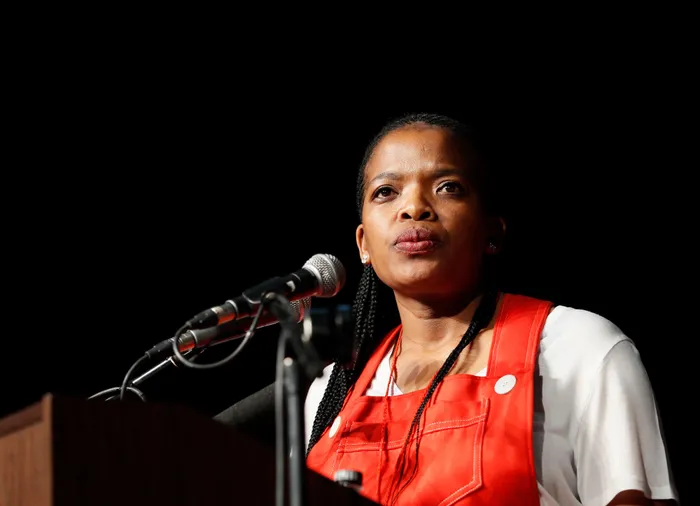
Minister of Electricity and Energy, Kgosientsho Ramokgopa.
Image: Supplied/GCIS
The Minister for Electricity and Energy, Dr Kgosientsho Ramokgopa, made an important call this past week for the South African National Energy Development Institute (Sanedi) to develop recommendations on how electricity can be made more affordable.
Since 2006 when loadshedding first creeped into South Africa, electricity prices have increased by nearly 700%, or a four-fold increase in real terms once consumer price inflation is taken into account.
This has bled the meagre wages of the working class, plunging them into suffocating debt and poverty, and impeded their ability to take care of their families or provide a better life for their children.
It has stifled economic growth as consumers have had to shift their limited cash towards buying electricity. It has made it difficult for SMMEs to grow or create jobs.
More recently it has begun to cripple our mining and manufacturing sectors and other electricity intensive users where electricity bills are now amongst their largest expenditure items. Many foundries have been forced to close, leaving their host rural communities with a bloodbath of job losses and little more than ghost towns.
Workers have similarly had to battle rising costs of transport and food due to international oil price increases. In response to these inflationary pressures, the repo rate was increased over the past three years by 475 basis points, adding further pain to the lives of millions of working and middle-class families and an already stagnant economy.
Rarely have workers’ wages kept pace with these rising costs of living.
These are structural shackles an economy sitting on 1% annual growth over the very same period and a 43.1% and rising unemployment rate (which has essentially doubled during this time) can ill afford.
It was precisely these challenges that drove Cosatu to draft the Eskom Social Compact that was adopted by government and social partners at Nedlac in 2020.
The key objectives of this Social Compact that laid the foundation for Eskom’s turnaround plan was not only to ensure the economy has reliable and accessible electricity, but also that it is affordable for consumers and businesses.
The first objective of overcoming loadshedding has essentially been won, providing invaluable relief to a struggling economy. This is a major victory that the workers of Eskom and our municipalities must be commended for.
We now need, as Minister Ramokgopa said, to move quickly towards ensuring that electricity is affordable if we are to provide relief to the working class and spur badly needed economic growth.
There are ten key pillars to achieving this.
First, as Eskom has correctly focused upon, is maintaining our generation, transmission and distribution infrastructure. It is far cheaper to do this than to run stations hard until they collapse. That was the approach of previous Eskom management who today claim amnesia. The cost of this was unparalleled loadshedding costing the economy billions.
Second is to plug Eskom and municipalities’ financial leakages. Key to doing this is for law enforcement organs to provide them the support to tackle corruption, cable theft, vandalism and naked criminality that involves management, officials, businesses and communities. Some of these involved highly sophisticated criminal syndicates and need the full force of the law to break.
Treasury needs to help Eskom identify ways to reduce wasteful expenditure and ensure more efficient ways of spending scarce resources.
When borrowing debt for investments in infrastructure, government and Eskom must do so from local banks and financial institutions as Rand denominated debt is always far cheaper than those in foreign currencies.
The government led by the African National Congress has done well to relieve Eskom of R253 billion or two thirds of its debt burden. This has enabled it to shift its resources to ramping up maintenance and thus unlocking economic growth.
This relief will only achieve its full effect when municipal debt is dealt with. In the past few years, we have seen municipal debt owed to Eskom more than double to over R94 billion and counting. This is unsustainable and if Eskom is to survive, let alone to be able to reduce electricity prices, then this gaping hole has to be closed.
Eskom needs to be supported to reduce its operating costs including shifting senior management away from cushy offices at Megawatt Park to its power stations where management needs to pay attention.
Eskom must be enabled to expand its renewable energy generation capacity as part of its energy mix, to expand clean energy sources and help Eskom reduce its generation costs. Renewables should not simply be the preserve of the private sector.
The rolling out of the announced 14 000kms in new transmission lines must be expedited as this will unlock renewable energy generation capacity in the three Cape Provinces as well as reduce transmission costs.
Part of Eskom’s turnaround and objectives in reducing electricity prices, must also be anchored in uplifting workers, local communities and businesses.
Workers and communities, must be supported to become owners of generation capacity, be it solar panels at a factory or mine, or their pension funds investing in generation capacity, in particular through Eskom. This will not only give a sense of ownership of Eskom and its assets to local communities and thus protect them from acts of criminality but also see returns on investment flow back into the pockets of workers and communities.
Eskom must source its materials, be it cement or steel, spare parts, solar panels, wind turbines, engines or vehicles from local manufacturers. This will not only save Eskom badly needed resources but also help nurture and sustain these companies and save and create local jobs.
Minister Ramokgopa’s call if materialised, can be the game changer that the economy desperately needs. Equally an economy in need of growth and jobs cannot afford to see the status quo continue.
Sanedi needs to take this task seriously and provide a blueprint to achieve it. Not over the next decade, but a plan that can ensure it becomes a living reality in the next few years.

Cosatu President Zingiswa Losi
Image: Independent Newspapers
Cosatu President Zingiswa Losi
*** The views expressed here do not necessarily represent those of Independent Media or IOL.
BUSINESS REPORT